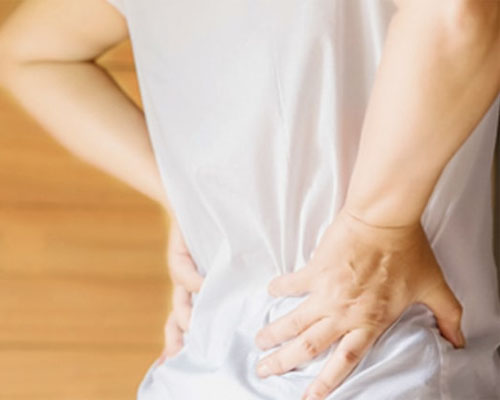Slipped Disc Treatment - By Dr. Pravin Ganjre
In young individuals, the soft disc can slip (herniate) due to lifting heavy weight, excessive traveling, excessive bending work or sometimes there may not be any associated factor. In elderly patients disc become hard due to natural aging and due to disc dehydration and thus already has some tendency to bulge but the above precipitating factors can further contribute to the disc herniation. One common point seen in almost all patients is that they have weak back (spinal) muscles and they are unaware of back strengthening exercises. Smoking is also a contributing factor.
There are definitely some restrictions as after any other surgery but are very simple and easy to follow. For example, after lumbar surgery, it is taught how to get up from the bed and lie down, not to lift heavy weight, not to sit cross-legged. This is extremely important and explained with a diagrammatic chart and patients are expected to follow this for a few weeks. Meet Dr. Pravin Ganjre for the best Slipped Disc Treatment in Pune.

Choose Our Doctor For The Best Care Of Yourself..
Are there any restrictions after surgery?
There are definitely some restrictions as after any other surgery but are very simple and easy to follow. For example, after lumbar surgery, it is taught how to get up from the bed and lie down, not to lift heavy weight, not to sit cross-legged. This is extremely important and explained with a diagrammatic chart and patients are expected to follow this for a few weeks.
Tell me something about the success rate and can we see or contact some of your happy patients?
Sure. Successful outcome after surgery is so great that each patient is bound to think that he/she must have taken the decision of surgery much earlier and made life comfortable. In this modern era, it is never seen that patient has the risk of life actually due to spine surgery or patient remains on stretcher or wheelchair lifelong. Thus, surgery is very simple and safe. A list of the huge patient can be seen outside our clinic with names, age, addresses. We have no failures till date (all our patients are aware of this) but the biggest surprise for surgical teams like us is that some patients keep bearing severe pain and later land into paralysis, who could have actually become alright after a simple surgery.
For further knowledge see video testimonials of some of our patients (note: these patients have actually suffered once thus have joined hands with our team to upgrade the knowledge of all general people who want to learn about latest advances; thus shown no restrictions in the declaration of their identity).
What causes the slip disc?
In young individuals, the soft disc can slip (herniate) due to lifting heavy weight, excessive traveling, excessive bending work or sometimes there may not be any associated factor. In elderly patients disc become hard due to natural aging and due to disc dehydration and thus already has some tendency to bulge but the above precipitating factors can further contribute to the disc herniation. One common point seen in almost all patients is that they have weak back (spinal) muscles and they are unaware of back strengthening exercises. Smoking is also a contributing factor.
What are symptoms of a slipped disc or herniated disc?
When the spinal cord or spinal nerves become compressed due to slipping disc, they don’t work properly. This means that abnormal signals may get passed from the compressed nerves (eg: pain, tingling), or signals may not get passed at all (eg: numbness /weakness/paralysis). Common symptoms of a herniated disc include:
Electric shock pain
Pressure on the nerves can cause abnormal sensations, commonly experienced as electric shock pains. When the compression occurs in the cervical (neck) region, the shock goes to your arms. But when compression occurs in the lumbar (low back) region, the shock goes to your legs (also known as sciatica).
Tingling & Numbness
This type of abnormal sensations is commonly experienced with slip disc. These pins and needles sensations occur in the arms (in cervical slip disc patients) and legs (in lumbar slip disc patients). Similarly, some patients complain of numbness in the same area.
Muscle weakness
We already know – our brain orders commands and body follow those orders. The signal for anybody action (eg: foot movement or hand movements) starts in the brain goes down to the spinal cord then goes to the spinal nerves and then to arms or legs. In severe form of slip disc, nerve pinch is also significantly more and thus brain signals are interrupted much more leading to muscles weakness. In other words, the brain wants to move the foot (or the hand) but is unable to do so. In simple words, it is the poor transmission of current something like the state of paralysis.
Bowel or Bladder problems
It is very important as it may be the feature of cauda equine syndrome. It is the medical emergency as it should be urgently managed if you have difficulty in passing urine or stool (constipation) or numbness around the genitalia due to slip or herniated disc.
